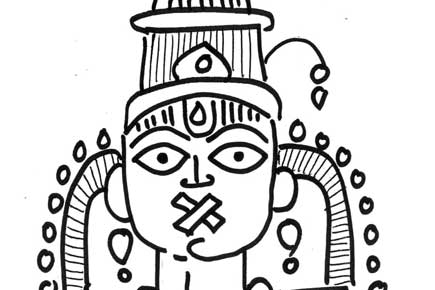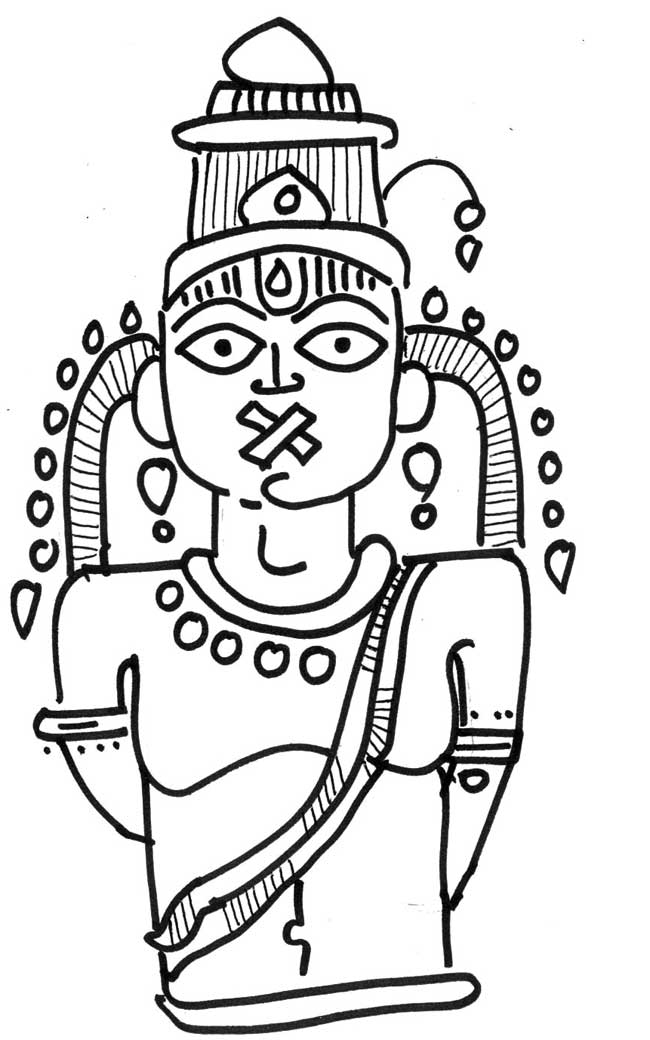A minister banned dance bars because it corrupts society. The same minister died of oral cancer, caused by gutkha and paan masala. Efforts are now being made to ban chewing of tobacco

 A minister banned dance bars because it corrupts society. The same minister died of oral cancer, caused by gutkha and paan masala. Efforts are now being made to ban chewing of tobacco. This is a good thing, says every doctor who has to deal with the horrors of cancer.
A minister banned dance bars because it corrupts society. The same minister died of oral cancer, caused by gutkha and paan masala. Efforts are now being made to ban chewing of tobacco. This is a good thing, says every doctor who has to deal with the horrors of cancer.
ADVERTISEMENT
Some things corrupt our mind. Some things corrupt our body. To save our mind and body from corruption, we need to ban things. Like we have banned smoking cigarettes, we believe banning certain kinds of films and jokes will create a better society. Politicians, filmstars and activists who argue against banning, against censors, in some forums end up banning and censoring in other forums.

Zillustration / Devdutt Pattanaik
We ban fatty foods from our lives, and carbohydrates, so we can be thin, and even healthy. We ban children from video games and television so they can do their homework. We ban young adults from parties (there can be drugs and sex, there). We ban public displays of affection. We ban colours during Holi. We ban fireworks in Diwali. We struggle to ban industries that destroy our ecosystem: the rivers are still polluted and the air is poisonous. Banning has now become a tool of civilisation. We ban things when we are outraged. We ban things when we want to protect someone else. We ban things for ‘their own good’ and often ‘for our sanity’.
Yet every ban comes at a price. Livelihood of bar dancers, for example. And livelihood of those people who work in tobacco industries. But, then, must we allow drug peddlers to thrive as it is also their livelihood? And alcohol barons? Why is selling alcohol that destroys the lives of so many poor women, subjects them to domestic violence, okay? Prohibition in America did not create a better society; it just helped the rise of gangland violence.
Every culture is based on what it allows and does not allow. But there is a difference in the way it is executed. In the West, what is banned and not banned is seen in terms of right and wrong. There is always a moral undercurrent as it needs to justify the curtailing of individual freedom and enterprise. It is important to prove that the reason is not based on some prejudice, but on logic and statistics. Thus, very scientifically, some North European countries have banned corporeal punishment of children. Even parents can be jailed. And countries that do not do as they do are seen as savage, unscientific and primitive.
Traditional Indian models saw all bans in terms of ‘dharma-sankat’, an unavoidable violence against the mental and physical body of some creature. It was neither right nor wrong; it was simply necessary. And it always came at a price, that one was obliged to suffer. Thus building a city demanded destruction of forests; culture was obliged to suffer the consequences of destroying nature. Marriage demanded fidelity of spouses; this would have consequences as freedom had been curtailed. Wisdom was finding ways to cope with these consequences, not rationalise them away.
Banning anything is not right, or wrong. It is a price we have to pay for civilisation, because not everyone has the maturity to voluntarily regulate themselves. It is an indicator of human weakness that we cannot accommodate, not something to be self-righteous or outraged about.
The author writes and lectures on relevance of mythology in modern times, and can be reached at devdutt@devdutt.com
The views expressed in this column are the individual’s and don’t represent those of the paper.
 Subscribe today by clicking the link and stay updated with the latest news!" Click here!
Subscribe today by clicking the link and stay updated with the latest news!" Click here!






